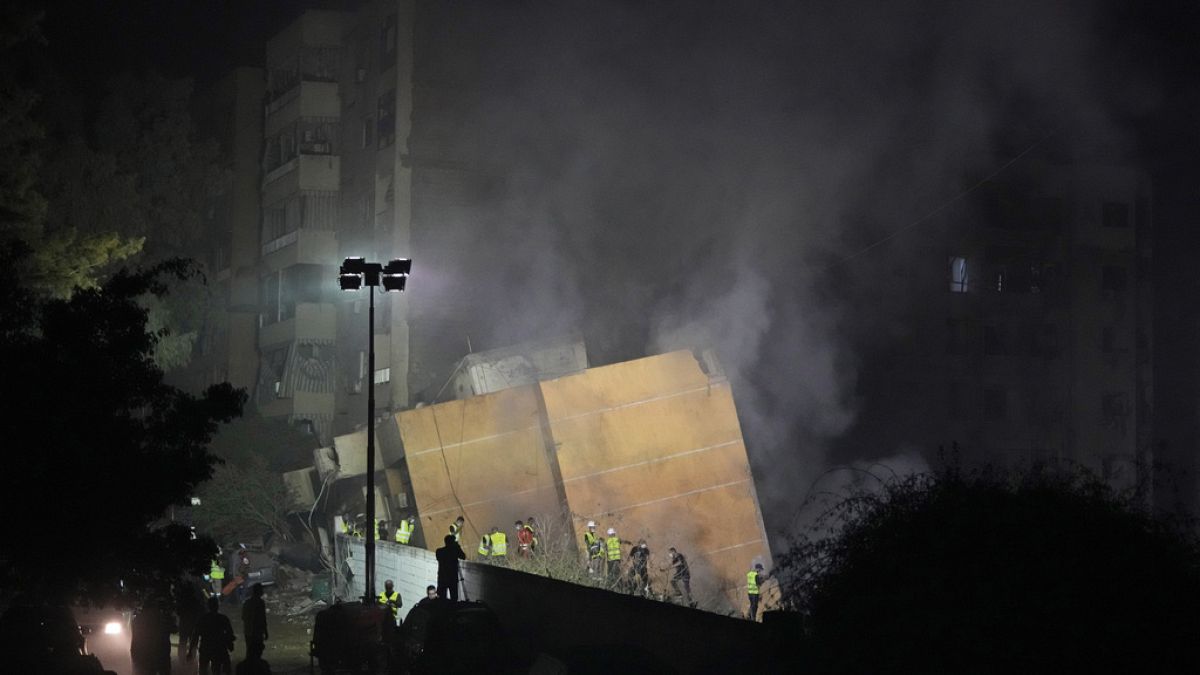Local media reports claim that the strike targeted Hezbollah chief Sayyed Hassan Nasrallah.
The Israeli military announced that it hit Hezbollah’s headquarters in Beirut on Friday with powerful explosions that marked the biggest blast on the Lebanese capital this year.
At least two people were killed and dozens were injured in the strike, which sent clouds of orange and black smoke into the sky.
Israeli media has claimed that Hezbollah leader Hassan Nasrallah was the target of the strike in Beirut’s southern suburbs.
Nasrallah has been in hiding for years, very rarely appearing in public with his speeches usually made by video from unknown locations.
The site targeted Friday evening had not been publicly known as Hezbollah’s main headquarters, though it is located in the group’s “security quarters,” a heavily guarded part of Haret Hreik where it has offices and runs several nearby hospitals.
The Israeli Defence Forces (IDF) declined to comment on the claim, however the size of the blasts imply a senior leader was present when the buildings were hit.
In a possible further sign of the significance of the strike, Prime Minister Benjamin Netanyahu abruptly cut short a visit to the United States — deciding to return to Israel immediately instead of waiting until the end of Sabbath on Saturday evening as was originally planned.
Israeli politicians do not normally travel on the Sabbath except for matters of great import.
Hours earlier, Netanyahu vowed that Israel’s campaign against Hezbollah would continue — diminishing hopes for an internationally backed cease-fire.
To a degree unseen in past conflicts, Israel this past week has aimed to eliminate Hezbollah’s senior leadership with Israeli army spokesman Rear Admiral Daniel Hagari openly saying the strikes pummelling Lebanon’s capital were targeted towards the main Hezbollah headquarters, located beneath residential buildings.
Israel dramatically intensified its airstrikes in Lebanon this week claiming that it was ending the 11 months of Hezbollah fire into its territory.
Although the precise scope of Israel’s operation remains unclear, officials have said a ground invasion to push the militant group away from the border is a possibility.
Adding to this, Israel has moved thousands of troops toward the border this week in preparation.
Israel’s strikes this week have killed more than 720 people in Lebanon, including dozens of women and children, according to statistics collected by the Health Ministry.

